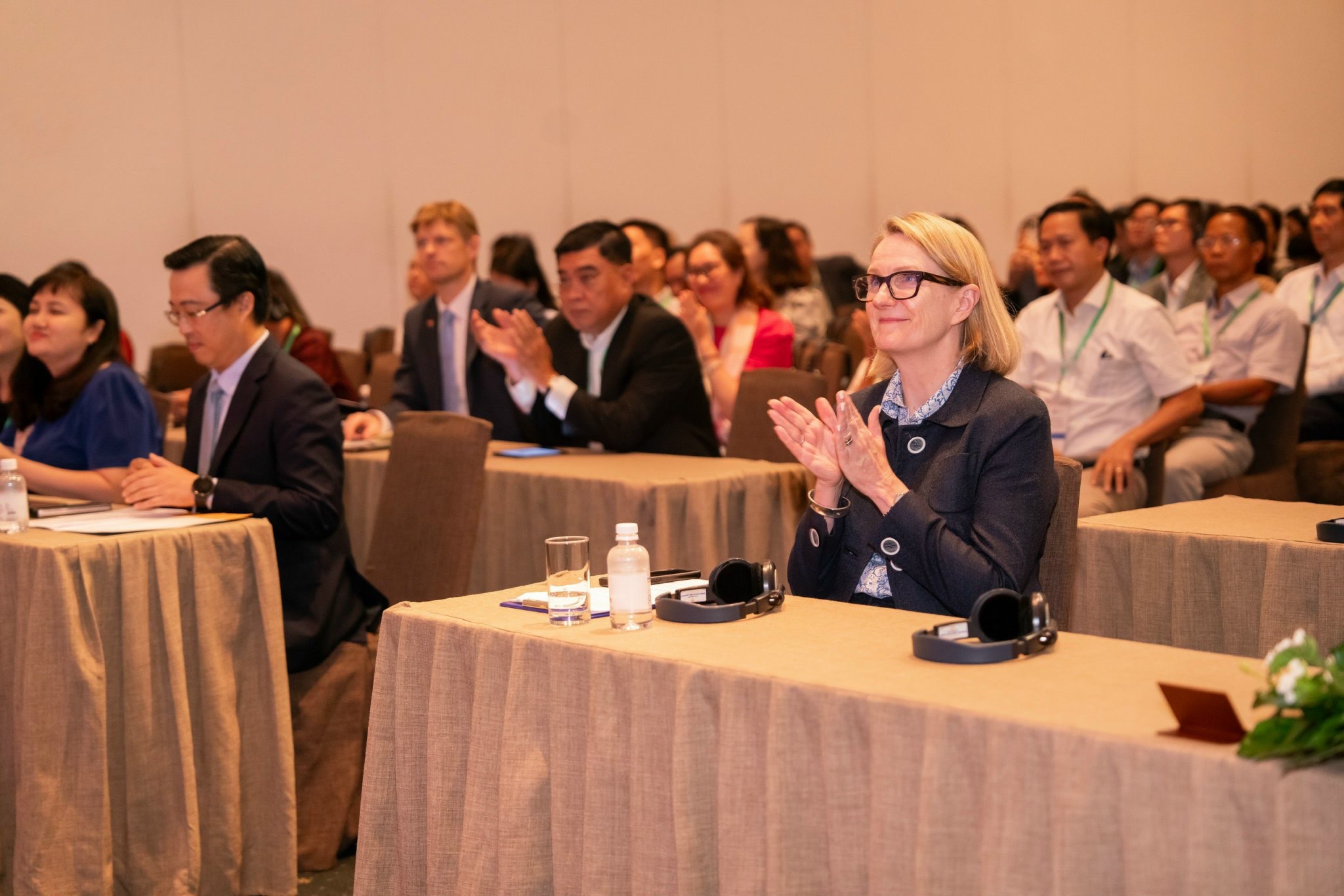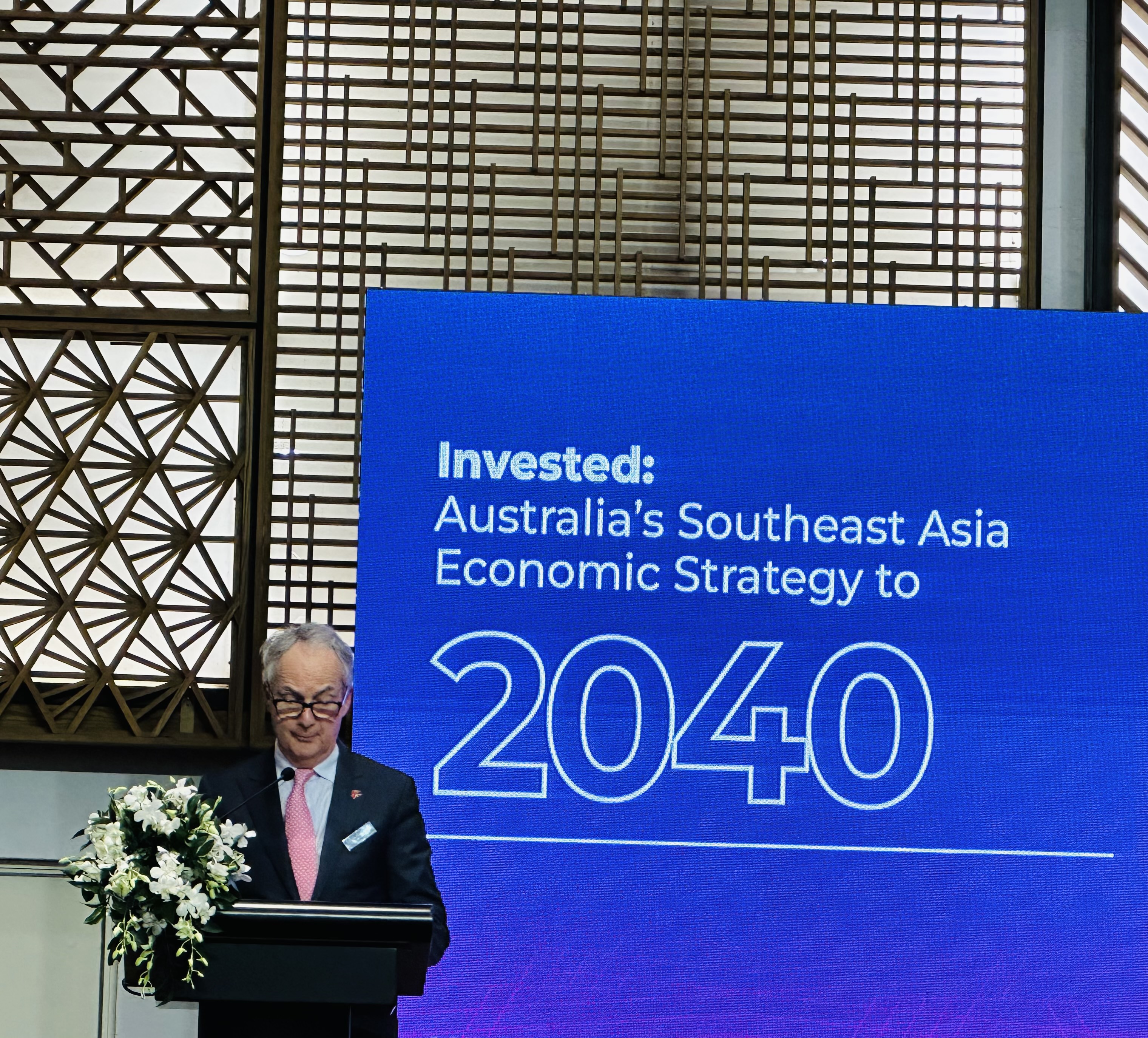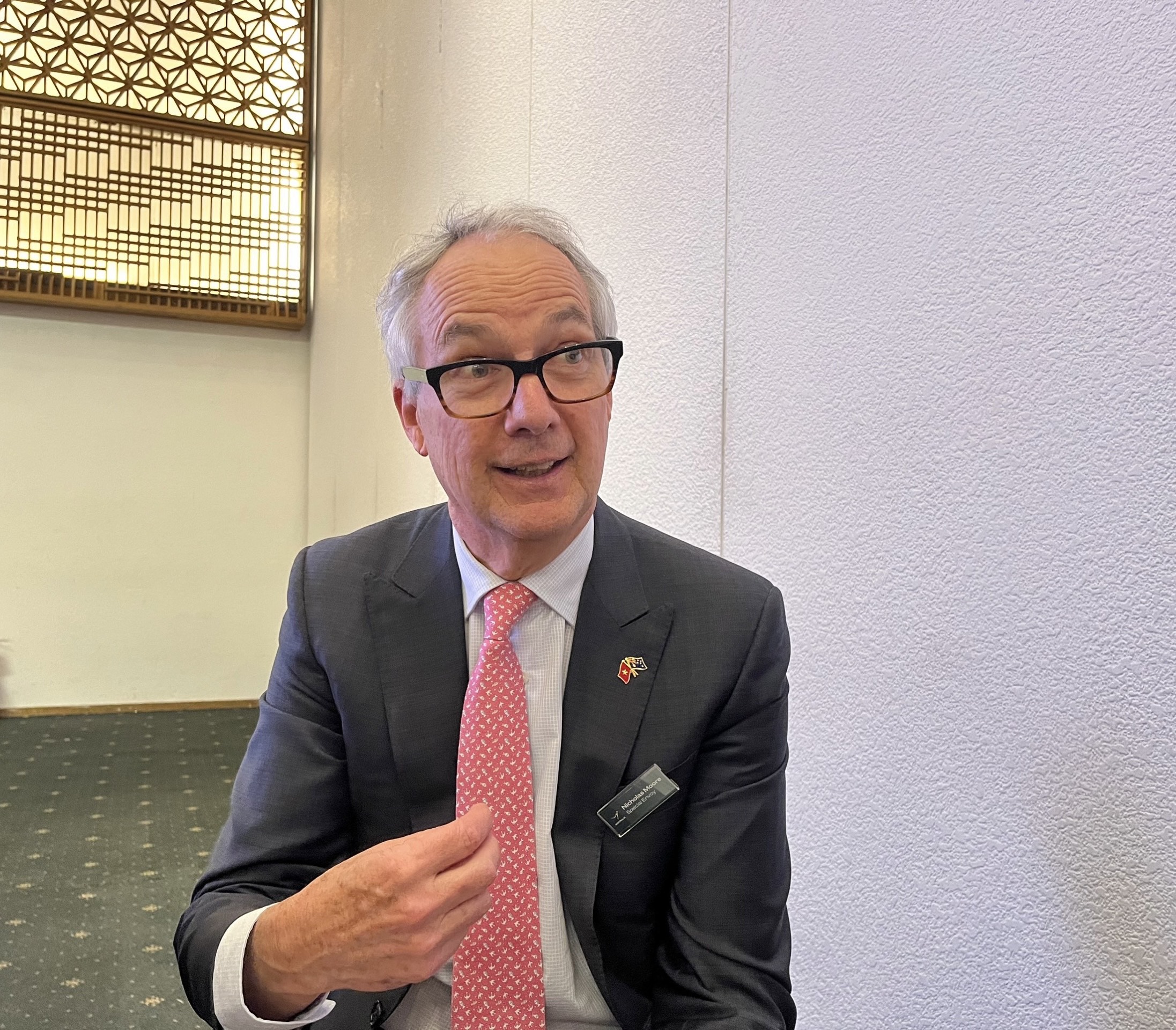The Australian government is working to enhance connectivity between Australian and Vietnamese businesses and beef up support for Australian investors to do business in Vietnam and vice versa, contributing to driving bilateral trade between the two nations, heard an information session held by the Australian Consulate General in Ho Chi Minh City on Tuesday.
The Australian side has launched a new ‘Deal Team’ and a Landing Pad program in Ho Chi Minh City in a bid to link Vietnamese and Australian enterprises and help them sound out cooperation and investment opportunities.
|
|
| Australia’s Special Envoy for Southeast Asia Nicholas Moore introduces Australia’s Southeast Asia Economic Strategy to 2040 at an information session held in Ho Chi Minh City on June 25, 2024. Photo: Tieu Bac / Tuoi Tre News |
Australia’s Special Envoy for Southeast Asia Nicholas Moore told Tuoi Tre News on the sidelines of the event that the establishment of the deal team and landing pad program in the southern metropolis is one of the key things to deepen the investment ties between Vietnam and Australia.
“We would like to see more Australian investment in Vietnam and also more [Vietnamese] investment in Australia,” he underlined.
The ‘Deal Team’ put together in Ho Chi Minh City will work with businesses and authorities in Vietnam to identify and facilitate investment opportunities in Vietnam for Australian investors.
Meanwhile, the Landing Pad program will bring together startups, research institutions, and tech players to drive Australian tech exports to Vietnam.
“We think there is great potential for investment in Vietnam from many countries, including Australia. The Australian government is very focused on assisting the Australian private sector to invest in Vietnam,” Moore said.
Australia’s Business Champion for Vietnam Louise Adams also underscored that the business champion’s role is to facilitate greater commercial links between Australia and Vietnam.
At the information session, the special envoy introduced Australia’s action plan to foster trade and investment with Vietnam, as part of the country’s Southeast Asia Economic Strategy to 2040.
The Australian government is raising awareness among businesses through several initiatives: establishing an outward investment mission program for institutional investors to explore opportunities in Vietnam, assisting Australian and Vietnamese firms in understanding digital trade rules and facilitation, attracting Vietnamese school students, and promoting new direct flights between Australia and Vietnam.
“The [Australian] government is doing a lot to increase awareness, while looking to build capability and remove blockages to deepen [the] investment [ties] between the two nations,” Moore stated.
Australia is set to prioritize investment in 10 sectors in Vietnam in particular and Southeast Asia in general, including agriculture and food, resources, green energy transition, infrastructure, education, tourism, healthcare, digital economy, professional and financial services, and creative industries.
Vietnam and Australia elevated their relations to a comprehensive strategic partnership, the highest level in the Southeast Asian country's international relations, during Vietnamese Prime Minister Pham Minh Chinh’s trip to the Oceanian country in March.
Two-way trade between the two nations reached AU$25.7 billion (US$17 billion) in 2022.
|
|
| Australia’s Special Envoy for Southeast Asia Nicholas Moore. Photo: Tieu Bac / Tuoi Tre News |
Australia’s Southeast Asia Economic Strategy to 2040 is a national strategy for greater trade and investment between Australia and Southeast Asia.
The strategy, developed by the special envoy for Southeast Asia, provides a practical pathway to significantly increase two-way trade and investment to maximize the potential of Australia’s and Southeast Asia’s economic growth.
By 2040, Southeast Asia will be an economic powerhouse fueled by favorable demographics, industrialization, urbanization, and technological advances, according to a report on Australia’s strategy.
Southeast Asia is projected to become the world's fourth-largest economy by 2040, after the United States, China, and India, with an expected compound annual growth rate of four percent between 2022 and 2040.
Like us on Facebook or follow us on Twitter to get the latest news about Vietnam!



















































